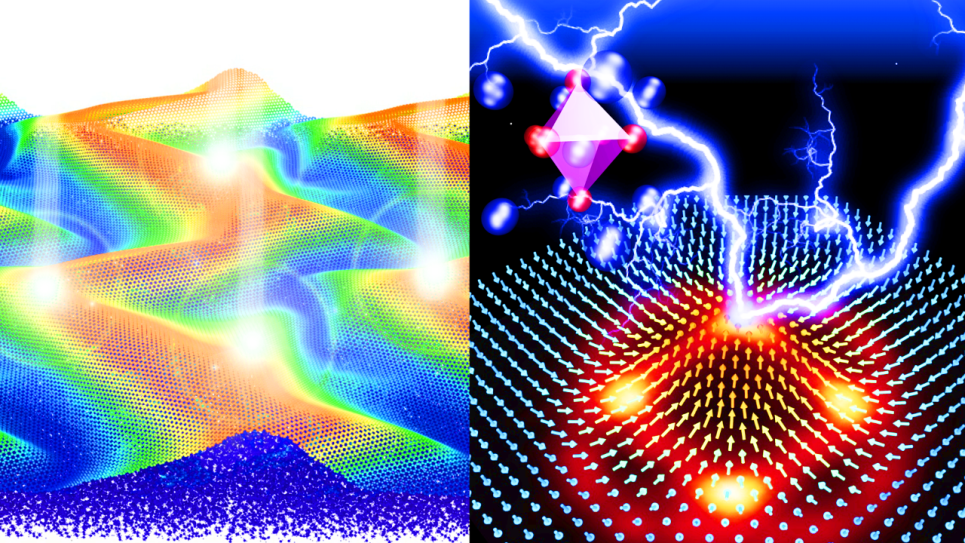
Dynamics of Conformational Transition in Thermo-Sensitive Polymers and Hydrogels
Subramanian Sankaranarayanan with Argonne’s Center for Nanoscale Materials was awarded 50 million hours to study conformational transformations in thermo-sensitive oligomers and their macroscopic architectures such as polymer brushers and polymer gels.
Understanding the conformational transformations of isolated linear polymer chains and their macromolecular architectures is a fundamental problem in the field of polymer science. Altering environmental variables such as temperature, pH, light, or providing external stimuli such as magnetic and electric fields can bring about these conformational changes. Thermo-sensitive polymers such as poly(n-isopropylacrylamide) (PNIPAM) represent an important class of materials, which undergo coil-to-globule transition across the lower critical solution temperature (LCST), which is around 305K.
These coil-to-globule transitions are of importance in a number of practical applications including drug delivery, medical diagnostics, tissue engineering, electrophoresis, separation, and enhanced oil recovery to name a few. For example, tuning the LCST of PNIPAM close to human body temperature via copolymerization can enable development of controlled drug delivery system. These studies will subsequently be extended to macromolecular architectures such as polymer brushes and gels of PNIPAM. Results from these simulations will be compared with the ongoing experiments being carried out at the APS division at ANL.
